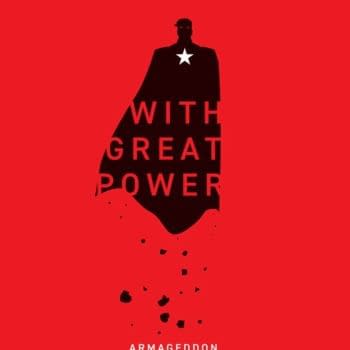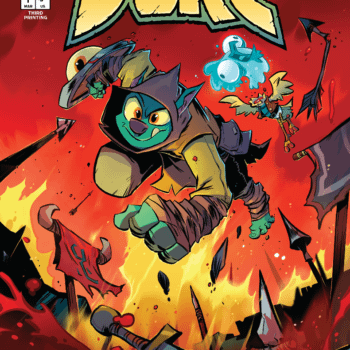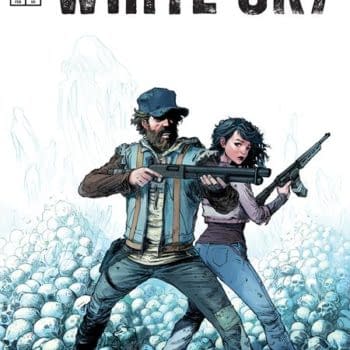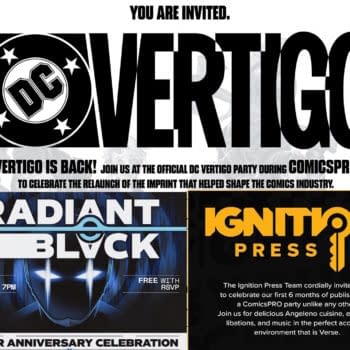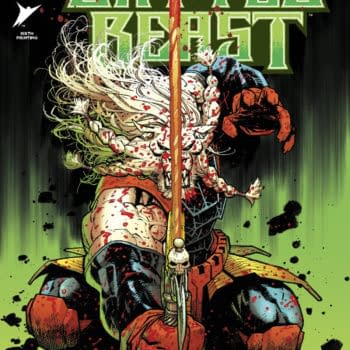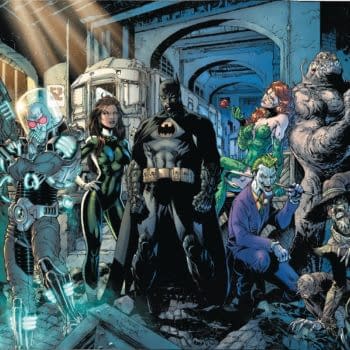Posted in: Comics | Tagged: Comics, david walker, doc savage, dynamite, entertianment, mark rahner, The Avenger
"I Always Thought The Avenger Was A Weirdly Underused Hero." – Mark Rahner On The Avenger Special
We have another writer to writer interview, this time with David Walker, writer of the Doc Savage Special, talks with Mark Rahner about the Avenger Special, both on sale now.

MARK RAHNER: The paperback reprints from the '70s were some of the first novels I ever read as a child, so writing an Avenger story brings me full circle. Couldn't be prouder to do it. By the way, Edu Menna's depiction of The Avenger strongly resembles the ones on those great paperback covers. Avenger fans really ought to dig that.
I always thought The Avenger was a weirdly underused hero. He should be as well-known as The Shadow and Doc Savage – though he had fewer original pulp adventures. He debuted the same time as Batman, and they have a bit in common, but Richard Benson seems even more traumatized and haunted and driven than Bruce Wayne.
DW: One of the things I always liked about the original Justice Inc. pulp stories was the diversity of the cast. Did that play into your development of the story?
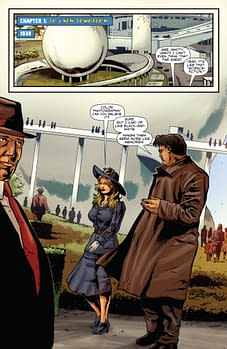
DW: There is a strong pulp sensibility to the story, while at the same time you address some very important issues that were relevant then, and remain relevant. Can you talk a bit about the decision to have this be more than a simple pulp thriller?
MR: Benson is a machine utterly dedicated to justice. And you'd be hard-pressed to think of greater injustice at that time than how black Americans were being treated. In fact, you really have to go out of your way to avoid it. Benson doesn't care about music. He isn't concerned that he's dealing with a big star. He's got another important – and gruesome – case to solve fast. But when Billie Holiday tells him her story, there's no way he's going to turn her away.
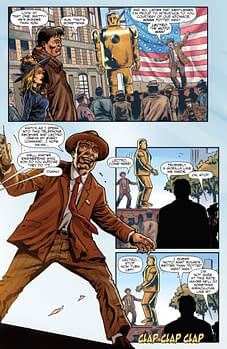
MR: My journalism background affects my research and writing in that sometimes I have to force myself to stop the research and start the writing! But it's also fun to delve into something as fantastic as the 1939 New York World's Fair. It was where people saw TV for the first time. And I hear that became a thing. The robot in my story is modeled after a real one that was there.
DW: What drove the decision to have Billie Holiday be part of the main story?
MR: At first, I was just being a wise ass. Dynamite wanted a holiday story, so I gave them Billie Holiday. But the more I researched her life, the more it seemed like a natural for Billie to be in The Avenger's world. They both rose above unthinkable sadness to do awe-inspiring things.
For more on The Avenger Special, click here.









